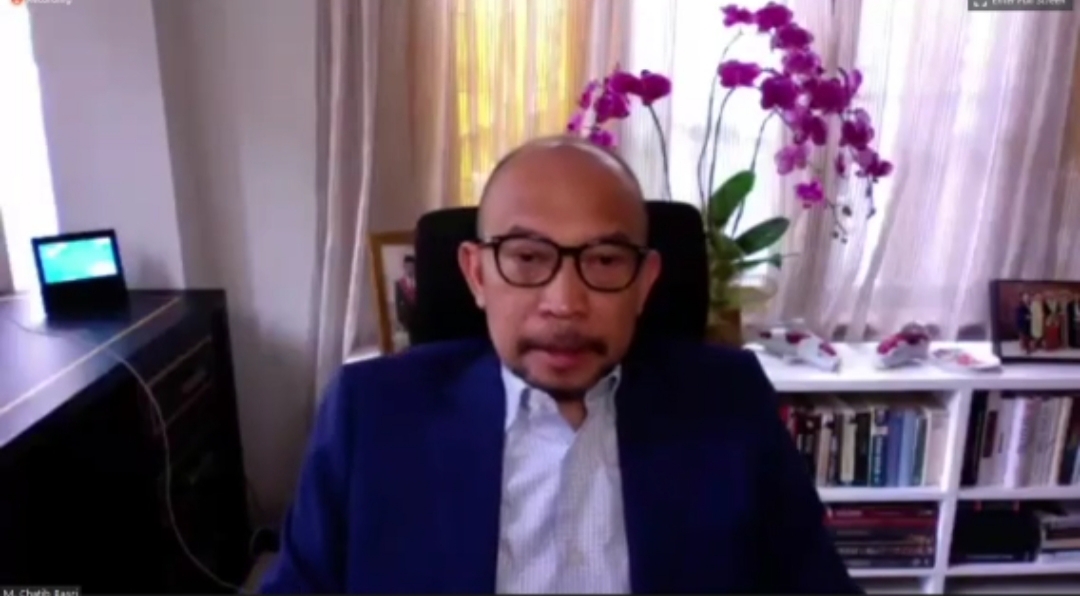Muhamad Chatib Basri at ANU’s Indonesia Project Conference: Indonesia’s Economic Condition during Pandemic
Nino Eka Putra ~ FEB UI Public Relations Officer
DEPOK – (8/9/2020) Former Minister of Finance Muhamad Chatib Basri who is also a lecturer at the Faculty of Economics and Business, Universitas Indonesia, discussed Indonesia’s economic condition during the Covid-19 pandemic in his welcoming remark at the Indonesia Project Conference webinar held by the Australian National University (ANU) entitled “Economic Dimensions of Covid-19 in Indonesia: Responding to the Crisis”, Tuesday (8/9/2020).
Indonesia’s economy has slowed due to the Covid-19 pandemic. A number of sectors are struggling to recover from the pressure from the pandemic. Today’s condition is also marked by loan slowdown as third-party funds and banking liquidity continue to surge.

Even if investment is pushed, consumption will increase only slightly. On the other hand, if the government boosts consumption, investment will increase significantly. Therefore, a fiscal stimulus is crucial as a remedy although a fiscal policy will not have a major impact.
“Even if we cut interest rates, there is no demand. That’s why interest rate cuts will not drive the economy. It is clear that to jump start the economy, first we must boost consumption,” said Chatib.
There are two major issues related to economic recovery, namely weak demand or lower purchasing power and external factors as the global economy has not recovered. On the other hand, if the government fails to provide social protection, especially at a time like today when most people do not have unemployment insurance and savings to survive. This will create new problems.
“Therefore, boosting consumption or increasing people’s purchasing power is the right solution to deal with the current economic condition. The government can provide support by distributing social assistance in the form of direct cash assistance, incentive for pre-employment card holders, and a Rp2.4 million monthly subsidy for four months for workers earning less than Rp5 million per month,” said Chatib. (hjtp)
(lem)



